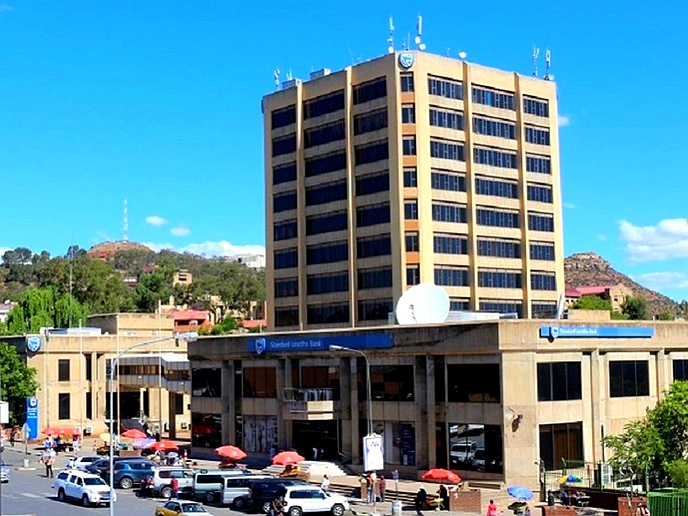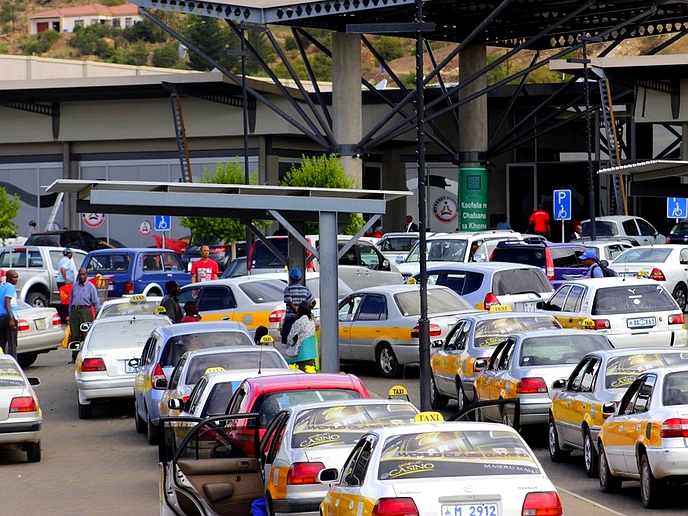LESOTHO Town and Regional Planning Institute (LTRPI) is hurting over the fact that the planning profession, which is critical for the development of Lesotho, is not recognised enough to become effective in the country.
business
Nov. 9, 2022
NEO SENOKO
4 min read
Town planning body uninspired by poor designing

Part of the city of Maseru
Story highlights
According to the institute, issues of town planning are not recognised legally in terms of legislation and as a profession that can transform this country.
Its legal and institutional frameworks are weak and largely not prioritized, the body contends.
“Planning work is disdained in this country; Lesotho governments have always had a laissez-faire approach towards the practical application of this profession. This has led and resulted to the country being ill-equipped to meet not only its local policy and legal mandates but international ones,” said LTRPI president, Teboho Lawrence Lebusa during the commemoration of the 2022 World Town Planning Day on Monday.
Under the theme, “Think Global, Plan Local”, the day is celebrated in 30 countries on four continents each year on November 8. It is a special day to recognise and promote the role of planners and planning in creating healthy, prosperous communities.
The prevailing nature of spatial developments in towns and urban areas of this country, the institute says is a clear sign of little to totally no progress in implementing the NUA and SDG 11 for sustainable urban development.
SDG 11.1 target states that by 2030, countries should ensure access for all to adequate, safe, and affordable housing and basic services and upgrade slums. SDG 11.2 of the same target specifically touches on the point in reference, citing that by 2030, countries should provide access to safe, affordable, and sustainable transport systems for all, improving road safety, notably by expanding public transport, with special attention to the needs of those in vulnerable situations.
SDG 11.3 talks about enhancement, inclusive and sustainable urbanisation, and capacity for participatory, integrated, and sustainable human settlement planning and management in all countries.
Despite all that, however, Lesotho is faced with a serious land-use crisis. Its planning system as well as the land administration and management practices are way off the mark, which is evidenced by the crippled, haphazard, and chaotic nature of spatial development in the country.
It does not have a good planning system that responds to modern-day spatial and land-use problems.
It is characterised by the highly visible manifestations of informal developments where an overwhelming majority of people live in unplanned and or informal settlements.
The fast-growing sprawl of informal settlements on agricultural or arable land and on the outskirts of Maseru city and secondary towns, and traffic congestion at major intersections and within the city bear testimony to this grim reality.
This is because urban development largely occurs outside legal means.
“The planning law in Lesotho has, for so long, seemed futile. The only major planning legislation in existence, namely the Town and Country Planning Act of 1980, is an old law that has never been fully implemented and applied and has never been reviewed and amended to correct its flaws. Planning is disengaged from land-use management tools and this attracts and promotes land-use incompatibilities, as some urban developments are not consistent with land and planning law,” Lebusa said.
He further touched on the informal land uses booming on the urban fringes, which he said are due to the inability to control the informal land markets, and this often leads to people occupying areas that are vulnerable to flooding.
Enjoy our daily newsletter from today
Access exclusive newsletters, along with previews of new media releases.
These informal developments are a result of the inability to put plans into effect, lack of development control and institutional imbalances and deficiencies, as well as an ineffective institutional mechanism for linking planning and land-use controls with the operation of the land market. Government lacks an explicit legal framework within which the system should operate, as well as an explicit policy design and land-use planning.
“It is up to the government of the day to prioritize planning or not. The institute is available and willing to help raise the standard of planning practice in this country, if given priority by the government,” Lebusa added.
Town planning profession is rooted in the desire to control and regulate the spatial development and use of land in the public interest and to ensure the efficient use of urban spaces.
The growing need for towns, due to growing levels of urbanisation across the world, calls for their planning to ensure their efficient, manageable, and orderly spatial development of urban human communities of settlements.
Ideally, properly planned towns promote smooth urban growth and become centres for economic growth as they facilitate essential opportunities, which include improved urban services.
.
Tailored for you






